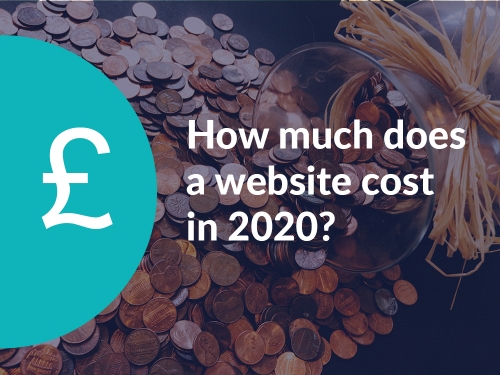Key Terms Every Website Owner Should Know
- 23rd May 2016
- Tutorial
There are specialised key terms that refer to all sorts of aspects in the web industry. We’ve put this little guide together to help those who may be looking for a new website now or in the near future.
Below is our handy guide with industry terms that should help clarify some of the terms we find many web designers and developers often use within project proposals. We’ve also thrown in a couple of our personal recommended choices within each term.
Why should you know these key terms?
So before we get into our list, why should you brush up on your knowledge on some of these terms? Ultimately it will help you and your chosen agency or freelancer to communicate more fluently. Ideally the web designer or developer should be able to cater to your level of expertise to a level you’re comfortable with. Unfortunately sometimes it’s unavoidable, For example, trying to explain what hosting involves and what a domain is exactly.
Looking into the below terms will also help you understand what it is you’re getting for your investment. Instead of going to a car dealership and purchasing a ‘red car’ and not knowing anything else about it – potentially running into problems in the near future. You can make an educated decision, purchase the blue car, knowing it has a great ride, reliable engine and comes with a guarantee.
Hosting
Hosting is the space on which a website sits to make it available to anyone with a PC and internet connection. Usually made up of one or more servers, hosting space can be purchased from a dedicated provider monthly or annually.
Domain
The domain is the name by which a website can be identified. Domains can consist of any combination of letters, numbers and hyphens (-). They can also have various extensions (TLD’s) for example, .com, .co.uk, .net etc.
CMS
CMS stands for Content Management System. A CMS is basically a way of website owners updating their own website structure and page content. A CMS is usually managed through a web browser and has a secure admin area protected by a password.
- WordPress – Our ‘goto’ choice of Content Management System
- MODx – Another great system, not as user friendly as WordPress, but certainly flexible to any requirement.
Responsive
A type of website that can adjust to varying screen sizes in order to maintain a slick user experience whether on a traditional PC, laptop, tablet or smartphone.
Semantics
Using the pre-defined tags in HTML that denote the nature of written content to make it more understandable to visitors and Search Engines. For example using ‘h’ tags for headers and ‘p’ tags for paragraphs.
Accessibility
Making sure a website can be used and enjoyed by any user. Particularly focusing on website usability for visitors with disabilities.
Degradation
Understanding (and dealing with) the visitors to your website who may be using older web browsers. This usually consists of agreeing compromises in design to ensure that content is still delivered in a usable manner.
Integration
Allowing visitors to interact with a business through featuring Social Media feeds or sharing options within a website.
Analytics
The data that is available to website owners to track the performance of the site in terms of visitor numbers, traffic sources, engagement and maximising goals.
Search Engine Optimisation (SEO)
SEO is a marketing discipline focusing on growing visibility in organic (non-paid) search engine results. SEO includes both technical and creative elements that drive traffic, increase awareness and ultimately the ranking of a website in search engines. Sometimes SEO is simply a matter of ensuring the website is well-structured and maintained.
Authority
Authority is what SEO is all about. Authority can be gained by attracting people to link to and share content via other websites or Social Media platforms.
Originality
In terms of design and, in particular, content. Originality is the one of the major factors in attracting returning visitors and performing well in Search Engines.
So there we have it! Our quick guide on what key terms we feel every new or future website owner should be familiar with on the modern web. If you have any further terms you feel should be on the list, please do leave a comment below!


